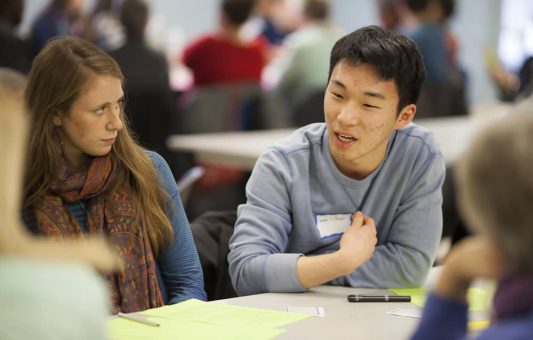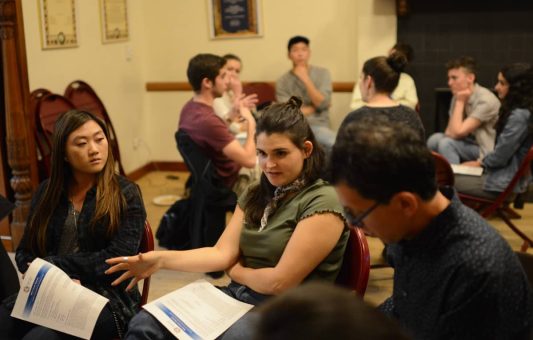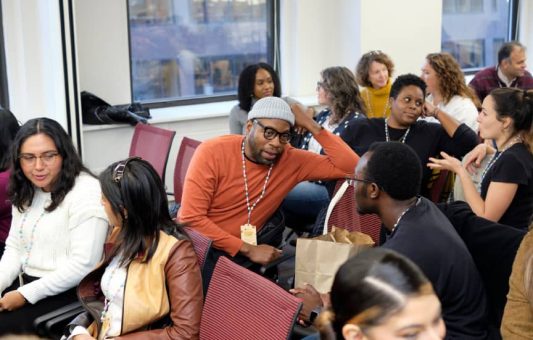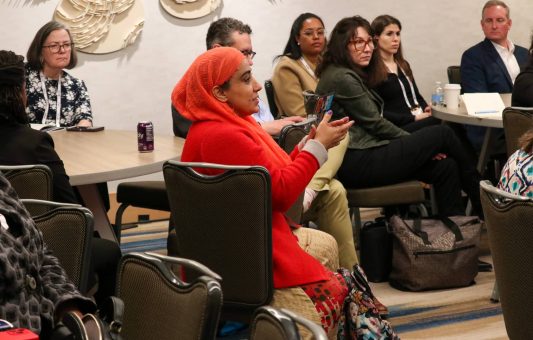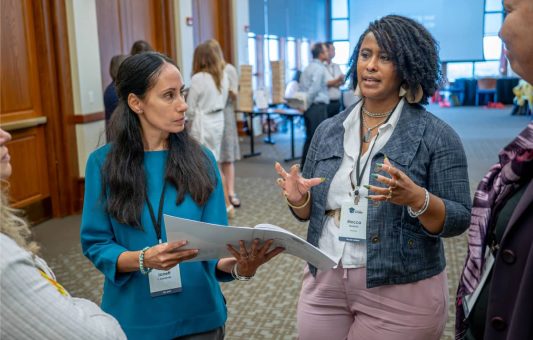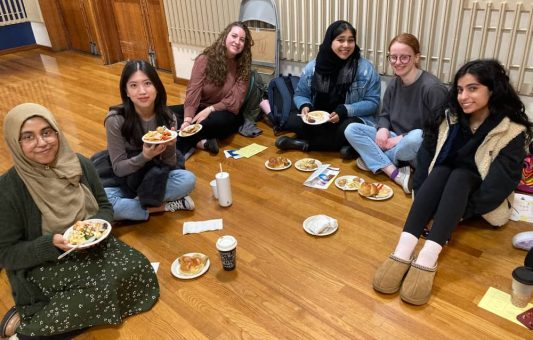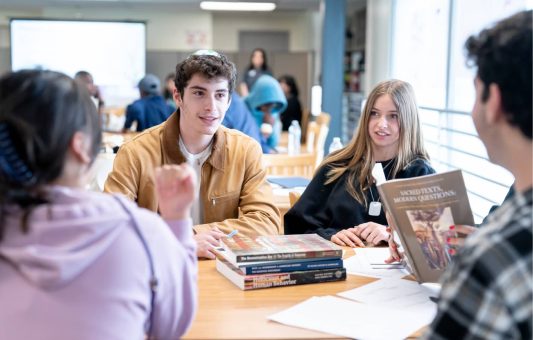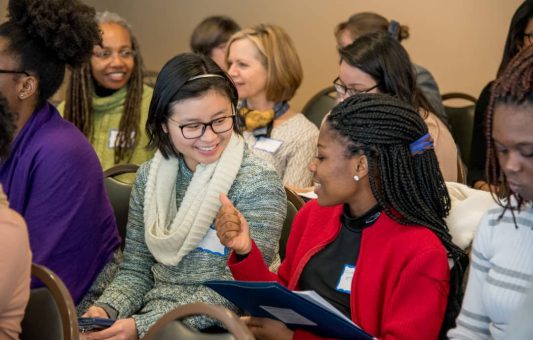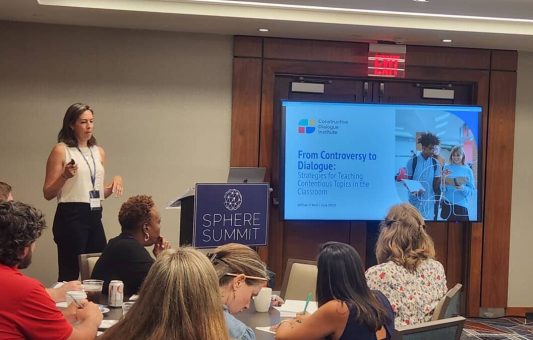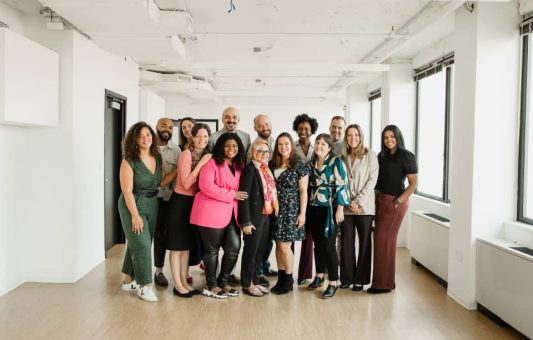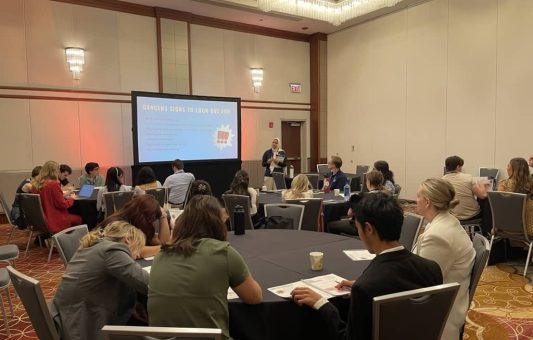Seeds of Peace implements dialogue and leadership development programs for youth and educators in communities in conflict across the globe to create more just and inclusive societies. Their model has proven effective at shifting attitudes through relationships grounded in trust and empathy – whether with Israelis and Palestinians experiencing extreme violence or with Americans across racial, religious, geographic, and political divides. With support from the Accelerator Fund, Seeds of Peace is increasing its capacity to meet the heightened demand from high school educators and administrators looking for training and facilitation support to bridge divides or transform conflicts at their schools.
See No Stranger, See No Enemy
Disagreement is inevitable and necessary in a multicultural democracy but hate and violence are not.
In the aftermath of October 7th, 2023 we saw upheavals on college campuses as a clear example of the growing distrust, division, and dehumanization in our country. The alarming rise in antisemitism and other forms of identity-based hate left some students feeling unsafe, targeted, and isolated in a place that was meant for their growth and development. The urgency to turn the tide against hate and discrimination is paramount. Combatting this hate empowers students to tackle the root causes of bigotry and confront all forms of discrimination.
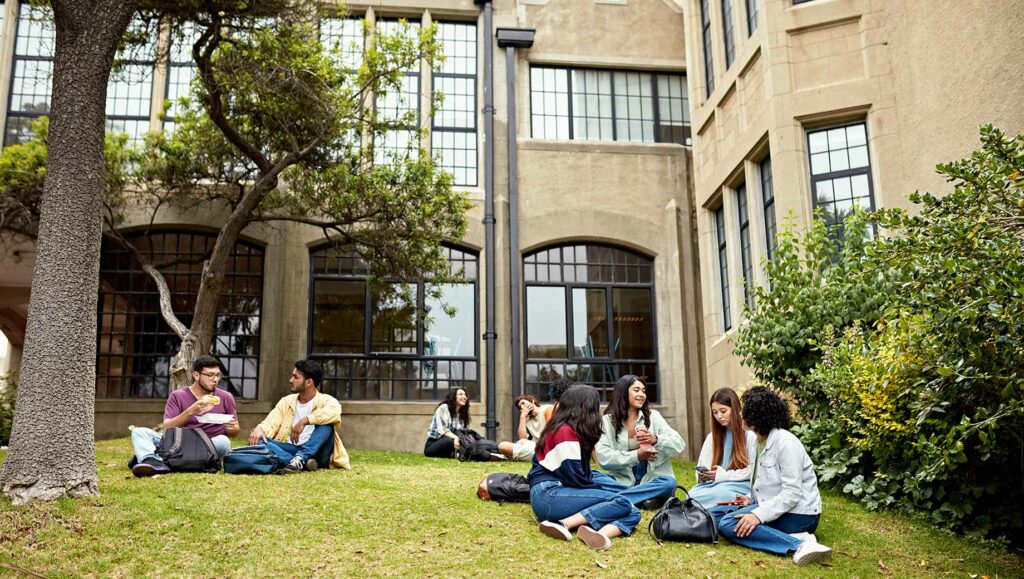
Schools and universities can play a critical role in helping students foster a culture of respect and belonging, engage productively with divergent viewpoints, and find strength in difference. Free and open inquiry, which are basic tenets of pluralism, contribute to the academic success, character development, and health and well-being of all students.
Nearly 80% of Americans believe that having more opportunities to engage with people who hold different values and views would transform conflict and reduce divisiveness. Now is the time to make those opportunities a reality on college campuses across the country, so young people are prepared to become empathetic leaders and active citizens in our diverse democracy.
 The urgency to turn the tide against hate and discrimination is paramount. Combatting this hate empowers students to tackle the root causes of bigotry and confront all forms of discrimination.
Schools and universities can play a critical role in helping students foster a culture of respect and belonging, engage productively with divergent viewpoints, and find strength in difference. Free and open inquiry, which are basic tenets of pluralism, contribute to the academic success, character development, and health and well-being of all students.
Nearly 80% of Americans believe that having more opportunities to engage with people who hold different values and views would transform conflict and reduce divisiveness. Now is the time to make those opportunities a reality on college campuses across the country, so young people are prepared to become empathetic leaders and active citizens in our diverse democracy.
The urgency to turn the tide against hate and discrimination is paramount. Combatting this hate empowers students to tackle the root causes of bigotry and confront all forms of discrimination.
Schools and universities can play a critical role in helping students foster a culture of respect and belonging, engage productively with divergent viewpoints, and find strength in difference. Free and open inquiry, which are basic tenets of pluralism, contribute to the academic success, character development, and health and well-being of all students.
Nearly 80% of Americans believe that having more opportunities to engage with people who hold different values and views would transform conflict and reduce divisiveness. Now is the time to make those opportunities a reality on college campuses across the country, so young people are prepared to become empathetic leaders and active citizens in our diverse democracy. About the Fund
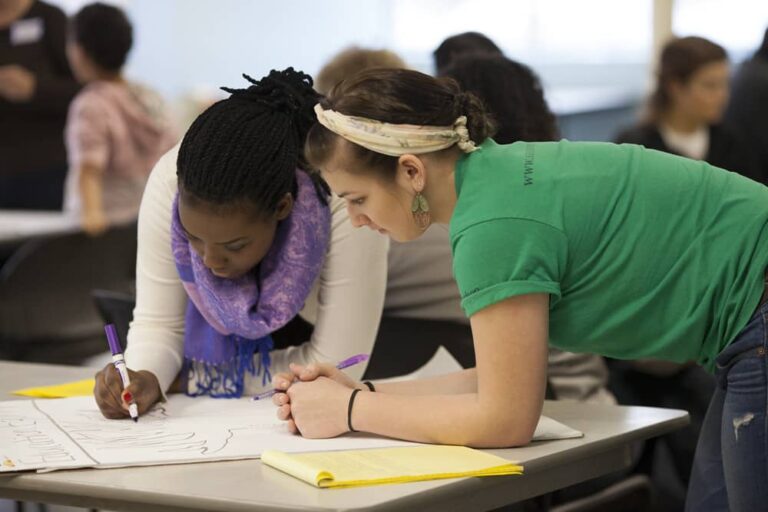
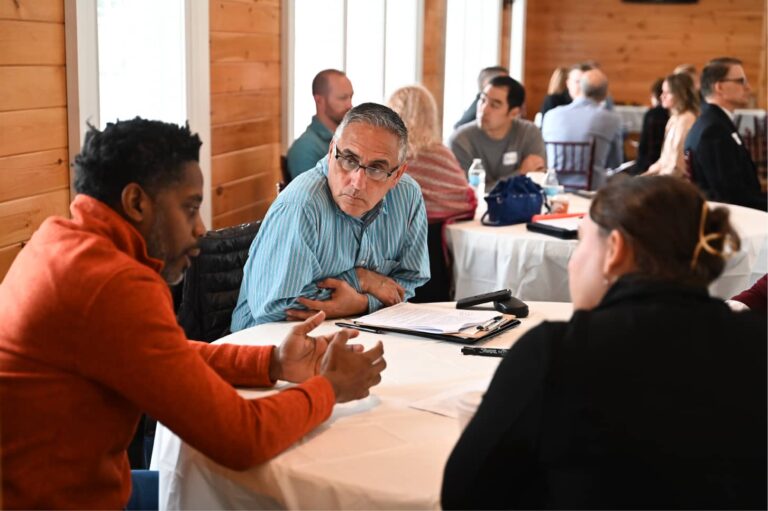
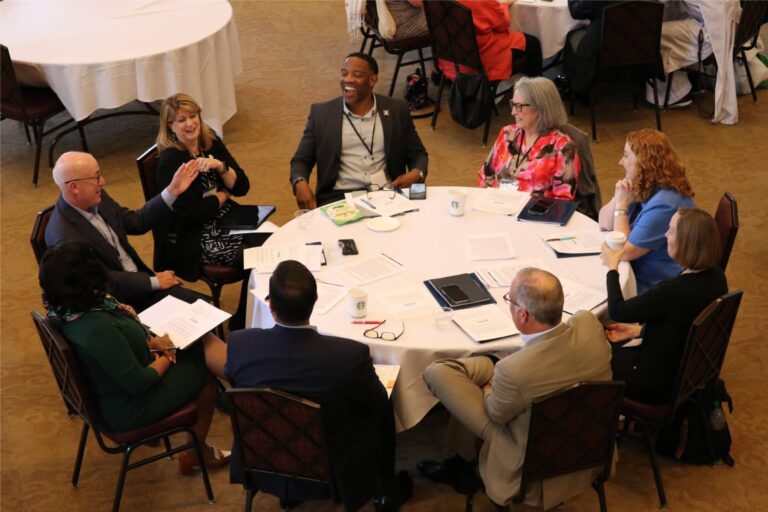
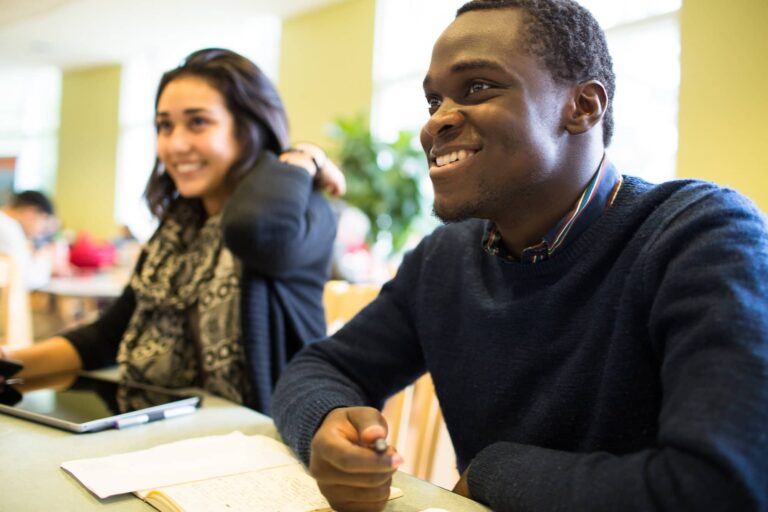
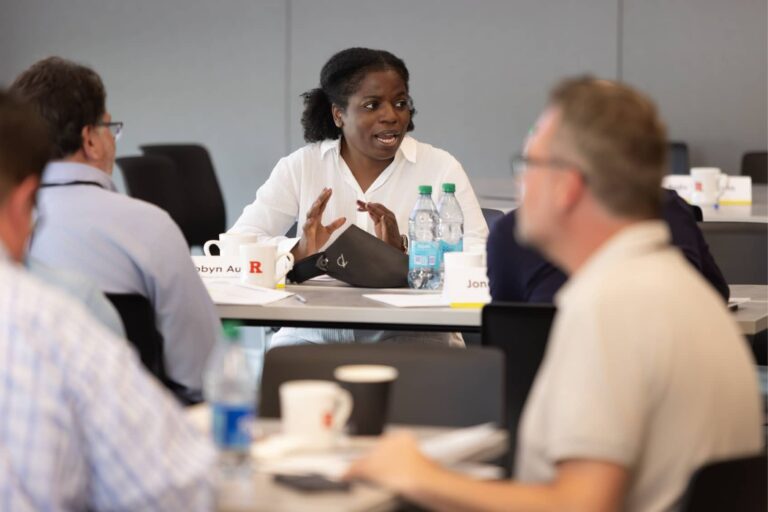
The “See No Stranger, See No Enemy” Pluralism Accelerator Fund was created in response to the rise in distrust, division, and hate since October 7th.
The Fund supports a slate of projects focused on higher education and other educational settings because we believe that the crisis will only worsen without immediate intervention. The majority of students are exhausted by the divisions at their schools and are eager to be part of a healthy campus climate where they can show up as their full selves and engage with others across lines of difference.
Projects
The Accelerator Fund provides support for high-performing organizations that demonstrate a commitment to pluralist practices, as well as an ability to implement research-backed projects that are ready to scale and deepen their impact.
Our partners will deploy rigorous, creative practices that empower students, faculty, and administrators in fostering relationships across differences, facilitating difficult discussions, transforming conflict, and navigating the heated issues of the day.
Grants are made to organizations that have:
01
Demonstrated commitment and research-backed practice to advance pluralism.
02
Strong understanding of the current climate as a result of October 7th.
03
Compelling strategy to scale and expand the reach and depth of the work quickly.
04
Pressing need and demand for the work.
______________
05
Commitment to measuring results and sharing emergent results and insights.
______________
While the organizations approach their work differently, they all aim to create an educational environment and culture where students, faculty, and staff can build relationships across differences and engage productively with multiple perspectives without fear of exclusion.
Resetting the Table is a leading resource for de-escalating conflict and building trust across strongly opposing viewpoints. With support from the Accelerator Fund, Resetting the Table is scaling its “Train-the-Trainers" program to reach over 10,000 students at 18 college campuses, as well as partnering with Hillel International to train Jewish higher education professionals and with the University of California, Los Angeles to build a campus-wide team of practitioners as part of a new Dialogue Across Difference Initiative.
Narrative 4 combines education, art, and action to equip young people to harness the power of stories to drive change in their communities. Through its core methodology, the Story Exchange, the organization has emerged as a leader in character-building practices for young people, reaching four continents, 42 countries, and 36 U.S. states through a vast network of educators, students, and artists. With support from the Accelerator Fund, Narrative 4 is partnering with various colleges to implement Story Exchange training and programming in academic and student life settings to foster positive dialogue on campuses.
Interfaith America inspires, equips, and connects leaders and institutions to unlock the potential of America’s religious diversity. With support from the Accelerator Fund, Interfaith America is launching Advancing Campus Pluralism Cohorts to help senior college leaders establish civic pluralism practices institutionally. Interfaith America will provide small grants, coaching, resources, and evaluation and storytelling support to each of the participating campuses in the cohort.
The Institute for Citizens & Scholars cultivates young leaders who are civically informed, engaged for the common good, and committed to democracy. With support from the Accelerator Fund, the organization is increasing both the number and diversity of institutions participating in its College Presidents for Civic Preparedness coalition. It is also expanding initiatives for campus leadership, faculty, and students to ensure that every student learns to seek diverse perspectives, engage constructively, and confidently express their views, even amid disagreements.
Hillel International is the world’s largest and most expansive Jewish campus organization, providing Jewish college students with cultural, religious, social, and educational experiences and enabling students to celebrate Shabbat and holidays with a Jewish campus community. With support from the Accelerator Fund, Hillel is providing microgrants for local campus chapters to collaboratively design and implement interfaith programs that build lasting interpersonal relationships and deeper understanding and appreciation of each other’s faith traditions. Hillel will also expand Black-Jewish microgrants through a new HBCU-Hillel partnership and partner with Resetting the Table to facilitate transformative dialogues on a subset of campuses.
Facing History & Ourselves uses lessons of history to challenge teachers and their students to stand up to bigotry and hate. Their classroom resources and professional development offerings examine racism, antisemitism, and prejudice at pivotal moments in history; they help students learn about the impact of choices made in the past and connect them to the choices they will confront in their own lives. With support from the Accelerator Fund, Facing History & Ourselves is enhancing its training and teaching resources, as well as establishing new partnerships with school districts and engaging 5,000 educators across the country in professional learning to combat antisemitism and other forms of identity-based hate.
Essential Partners facilitates open conversations around divisive issues among civic groups, schools, faith communities, colleges, and organizations to strengthen relationships, deepen belonging, and renew hope in their communities. With support from the Accelerator Fund, Essential Partners is deepening their engagement with over 50 higher education institutions as part of the Reflective Structured Dialogue community of practice, as well as forging new partnerships with colleges and universities to deliver their signature program.
The Constructive Dialogue Institute works with institutions across the education, for-profit, non-profit, and public sectors to help them foster dialogue across differences and build inclusive cultures. With support from the Accelerator Fund, Constructive Dialogue Institute is scaling its suite of educational programs to hundreds of college campuses to help college presidents, administrators, faculty, staff, and students strengthen a culture of healthy dialogue and pluralism on their campuses.
Common Ground USA, the U.S.-focused initiative of global peacebuilding organization Search for Common Ground, is partnering with Soliya, a virtual exchange program, to support administrators and students to navigate turbulence and transform colleges into centers of cohesion. With support from the Accelerator Fund, the two organizations are expanding their Administrators’ Bootcamp, which empowers university leaders for crisis prevention and mitigation, and their Common Ground Journalism program, which trains a national cohort of student journalists in conflict-sensitive reporting.
BridgeUSA is building a student-led movement of more than 10,000 students across 65 colleges and 20 high schools to accelerate the adoption of pluralistic norms on college campuses. With support from the Accelerator Fund, BridgeUSA is equipping its network of student leaders with new training, resources, and rapid-response support to navigate campus tensions related to October 7th and the ongoing war in the Middle East, creating 25 new college chapters, and hosting a student summit in the summer of 2025.
BridgeUSA is building a student-led movement of more than 10,000 students across 65 colleges and 20 high schools to accelerate the adoption of pluralistic norms on college campuses. With support from the Accelerator Fund, BridgeUSA is equipping its network of student leaders with new training, resources, and rapid-response support to navigate campus tensions related to October 7th and the ongoing war in the Middle East, creating 25 new college chapters, and hosting a student summit in the summer of 2025.
Common Ground USA, the U.S.-focused initiative of global peacebuilding organization Search for Common Ground, is partnering with Soliya, a virtual exchange program, to support administrators and students to navigate turbulence and transform colleges into centers of cohesion. With support from the Accelerator Fund, the two organizations are expanding their Administrators’ Bootcamp, which empowers university leaders for crisis prevention and mitigation, and their Common Ground Journalism program, which trains a national cohort of student journalists in conflict-sensitive reporting.
The Constructive Dialogue Institute works with institutions across the education, for-profit, non-profit, and public sectors to help them foster dialogue across differences and build inclusive cultures. With support from the Accelerator Fund, Constructive Dialogue Institute is scaling its suite of educational programs to hundreds of college campuses to help college presidents, administrators, faculty, staff, and students strengthen a culture of healthy dialogue and pluralism on their campuses.
Essential Partners facilitates open conversations around divisive issues among civic groups, schools, faith communities, colleges, and organizations to strengthen relationships, deepen belonging, and renew hope in their communities. With support from the Accelerator Fund, Essential Partners is deepening their engagement with over 50 higher education institutions as part of the Reflective Structured Dialogue community of practice, as well as forging new partnerships with colleges and universities to deliver their signature program.
Facing History & Ourselves uses lessons of history to challenge teachers and their students to stand up to bigotry and hate. Their classroom resources and professional development offerings examine racism, antisemitism, and prejudice at pivotal moments in history; they help students learn about the impact of choices made in the past and connect them to the choices they will confront in their own lives. With support from the Accelerator Fund, Facing History & Ourselves is enhancing its training and teaching resources, as well as establishing new partnerships with school districts and engaging 5,000 educators across the country in professional learning to combat antisemitism and other forms of identity-based hate.
Hillel International is the world’s largest and most expansive Jewish campus organization, providing Jewish college students with cultural, religious, social, and educational experiences and enabling students to celebrate Shabbat and holidays with a Jewish campus community. With support from the Accelerator Fund, Hillel is providing microgrants for local campus chapters to collaboratively design and implement interfaith programs that build lasting interpersonal relationships and deeper understanding and appreciation of each other’s faith traditions. Hillel will also expand Black-Jewish microgrants through a new HBCU-Hillel partnership and partner with Resetting the Table to facilitate transformative dialogues on a subset of campuses.
The Institute for Citizens & Scholars cultivates young leaders who are civically informed, engaged for the common good, and committed to democracy. With support from the Accelerator Fund, the organization is increasing both the number and diversity of institutions participating in its College Presidents for Civic Preparedness coalition. It is also expanding initiatives for campus leadership, faculty, and students to ensure that every student learns to seek diverse perspectives, engage constructively, and confidently express their views, even amid disagreements.
Interfaith America inspires, equips, and connects leaders and institutions to unlock the potential of America’s religious diversity. With support from the Accelerator Fund, Interfaith America is launching Advancing Campus Pluralism Cohorts to help senior college leaders establish civic pluralism practices institutionally. Interfaith America will provide small grants, coaching, resources, and evaluation and storytelling support to each of the participating campuses in the cohort.
Narrative 4 combines education, art, and action to equip young people to harness the power of stories to drive change in their communities. Through its core methodology, the Story Exchange, the organization has emerged as a leader in character-building practices for young people, reaching four continents, 42 countries, and 36 U.S. states through a vast network of educators, students, and artists. With support from the Accelerator Fund, Narrative 4 is partnering with various colleges to implement Story Exchange training and programming in academic and student life settings to foster positive dialogue on campuses.
Resetting the Table is a leading resource for de-escalating conflict and building trust across strongly opposing viewpoints. With support from the Accelerator Fund, Resetting the Table is scaling its “Train-the-Trainers" program to reach over 10,000 students at 18 college campuses, as well as partnering with Hillel International to train Jewish higher education professionals and with the University of California, Los Angeles to build a campus-wide team of practitioners as part of a new Dialogue Across Difference Initiative.
Seeds of Peace implements dialogue and leadership development programs for youth and educators in communities in conflict across the globe to create more just and inclusive societies. Their model has proven effective at shifting attitudes through relationships grounded in trust and empathy – whether with Israelis and Palestinians experiencing extreme violence or with Americans across racial, religious, geographic, and political divides. With support from the Accelerator Fund, Seeds of Peace is increasing its capacity to meet the heightened demand from high school educators and administrators looking for training and facilitation support to bridge divides or transform conflicts at their schools.
Frequently Asked Questions
We plan to share project updates and cross-cutting insights at the end of the grant cycle. In the meantime, you can reach out with any questions using the Contact Form below.
Contact Us
The “See No Stranger, See No Enemy” Pluralism Accelerator Fund is a grantmaking collaborative that supports bridge-building and peacebuilding organizations that empower students, faculty, and administrators to engage across differences and build a culture of respect and belonging in their schools.
